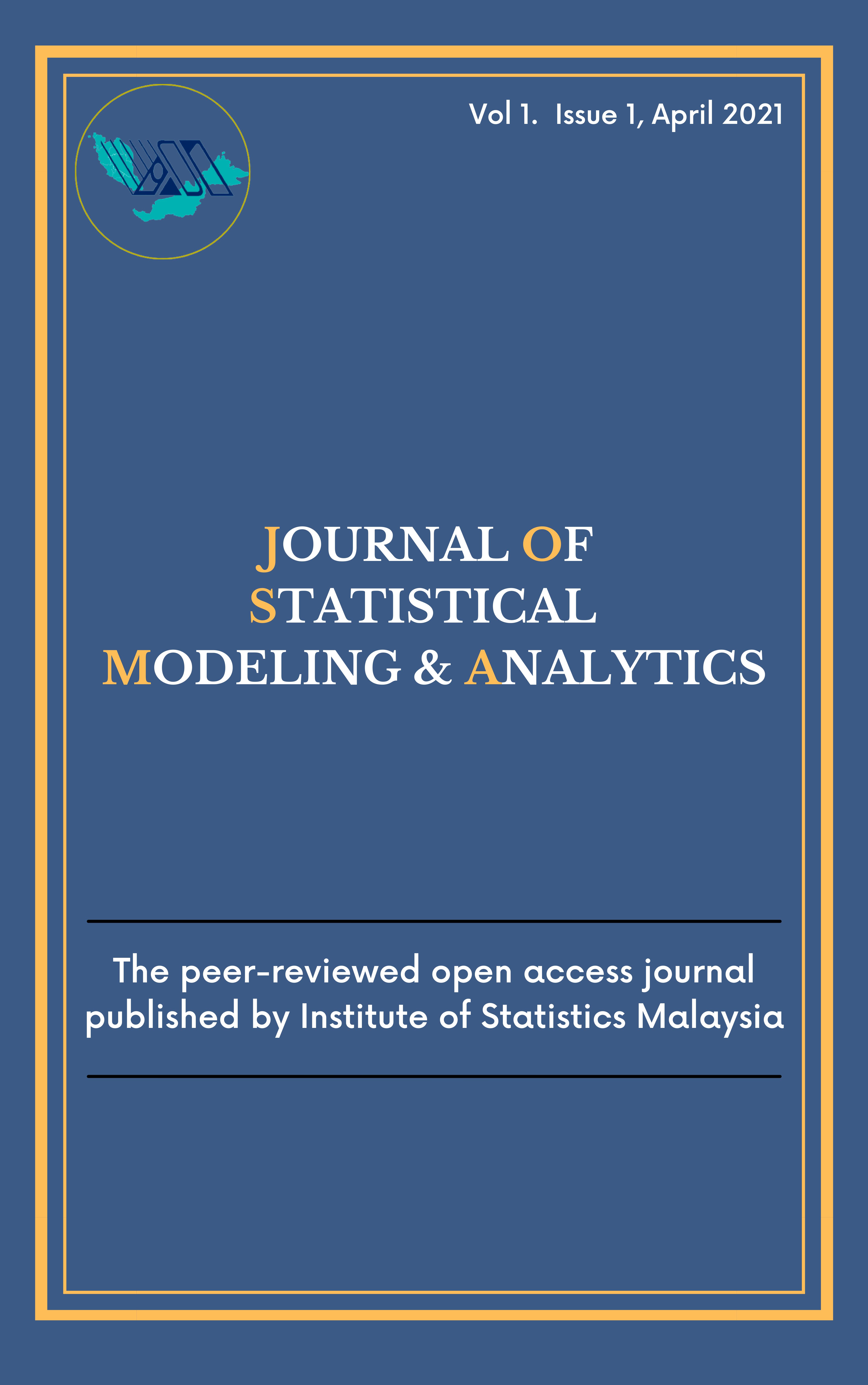Modelling and Forecasting Volatility of Crude Oil Returns in Nigeria based on Six Error Innovations
DOI:
https://doi.org/10.22452/josma.vol3no1.6Keywords:
AP-ARCH, Crude oil, GARCH, Skew Student’s-t error distribution, VolatilityAbstract
Modeling price volatility of crude oil (PVCO) is pertinent because of the overbearing impact on any oil-producing economy. This study aimed at evaluating the performance of some volatility models in modeling and forecasting crude oil returns. Utilizing daily returns data from October 23, 2009, to March 23, 2020, this study attempted to capture the dynamics of crude oil price volatility in Nigeria using a symmetric and asymmetric GARCH models. In our research, we considered the generalized autoregressive conditional heteroscedastic model (GARCH), Exponential (E-GARCH), Glosten, Jagannathan and Runkle (GJR-GARCH) and Asymmetric Power (AP-ARCH) under six error innovations that include the skewed variant of the student-t, generalized error and normal distribution. From the results obtained, it was discovered that the AP-ARCH (1, 1) model performed better in the fitting and performance evaluation phase. The skew Student’s t-distribution (SStD) was also reported to be the best performing error innovation in most of the models. Based upon these results, we conclude that the AP-ARCH (1, 1)-SStD model is the best model for capturing the dynamics of crude oil returns in Nigeria.


